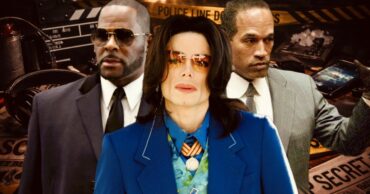I know that just from looking at the title of this article, some of you have your pitchforks out and are ready to set fire to my home. David Tennant received such love during his time as the Doctor (from myself included) that I’m sure plenty of people balk at the very idea that there could be a better Doctor. That’s certainly a valid point — Tennant was very, very good — but I know for a fact that Matt Smith is a better Doctor because I don’t miss Tennant anymore.
Sure, I missed him after “The End of Time.” Who wouldn’t have, after seeing Tennant’s impassioned whisper of “I don’t want to go” right before the regeneration kicked in? I, like most others, was a little put off by who he turned into: a young, silly man who questioned his own gender before kissing his legs and shouting “Geronimo!” That was partially because the introduction of Smith really broke the emotional crescendo set by Tennant’s goodbye, and maybe we were all a little subconsciously angry with him for that.
But when the Doctor burst through the image of Tennant’s face in the climax of “The Eleventh Hour,” I knew it was all over. Tennant was my first Doctor, but Smith was my best. His performance was much lighter than Tennant, with the ability to go just as dark. “Hello, I’m the Doctor,” he warned the Atraxi in the series five premiere. “Basically… run.”
Smith’s brilliant acting made him the star of every episode, not unlike Tennant. In fact, there are many similarities between Tennant and Smith. It all comes down to range of emotion, and Smith simply has more than Tennant, especially on the lighter side of things. Tennant can play angry like nobody’s business, and he can play sad as well. Smith, while well-versed on all ranges of emotions, really excels in the happiness department. Perhaps that’s because he’s rid himself of all the guilt left over from the Time War. While Tennant (like Christopher Eccleston before him) spent a lot of his episodes reflecting on the horrible Time War that killed his species, Smith’s Doctor simply dismissed the Time War as “It was a bad day. A lot of bad stuff happened.” And like that, the Doctor’s guilt seems to be no longer a burden to the Doctor, or to the viewer (it was getting rather tiresome). Instead, while the Doctor still copes with the loneliness of being the last of his species, he has a little more room for happiness and love. Who can deny that, after watching the last few scenes of “Vincent and the Doctor,” or “The Lodger?”
Finally, part of what makes Smith great is the comedy induced by his culture shock. While most of Tennant’s comedy drew from his rambling on about science and “wibbly-wobbly, timey-wimey, stuff,” Smith plays the Doctor as simply a fish out of water — more alien than ever. His impulsive nature only makes this nature more apparent — after stealing a tweed suit with a bow tie, Smith proclaims that “bow ties are cool,” and later swaps compliments with a museum curator about each others’ bow ties. He similarly adopts a fez in “The Big Bang,” declaring that “fezzes are cool,” but this idea was literally shot down by River Song. The Doctor’s football match in “The Lodger” was equally hilarious, because he insisted upon kissing the cheeks of everyone he met (though he did turn out to be quite talented at football).
And that comedy is equally balanced by the darkness. Smith portrays the Doctor’s age perhaps more well than Tennant because he is younger — his acting reflects the same amount of world-weariness as previous incarnations, though his youth really accentuates that emotion and makes it even more prevalent. Take “The Beast Below,” for example, when he is faced with the choice to lobotomize a star whale or to kill an entire spaceship full of humans. “And then, I… I find a new name, because I won’t be the Doctor anymore,” he says.
It all comes down to acting and range, really, and Smith simply brings more to the table than Tennant did. While Tennant is the most popular Doctor to date (and probably still has a lot of vehement fans who object to this article), I think that giving Smith a couple of years in the TARDIS will lead others to really appreciate him as one of the best — if not the best — Doctors yet.
 Follow Us
Follow Us





